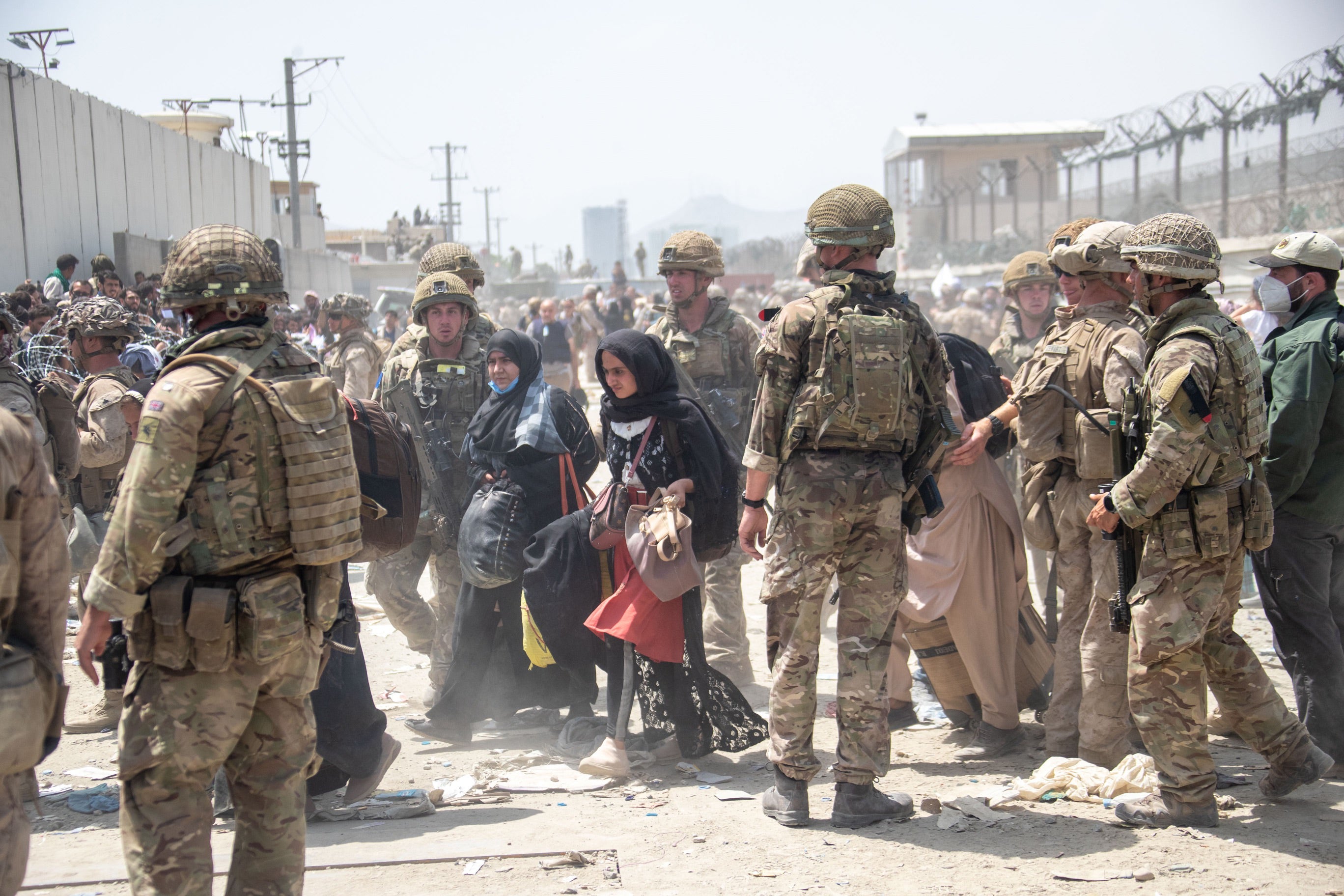Afghanistan is moving into a darker future – and we are letting it happen
Editorial: Today marks two years since Britain’s chaotic exit from Kabul and the Taliban takeover. The way we’ve treated our Afghan allies ever since has been nothing short of a disgrace

Two years on from Britain’s chaotic exit from Kabul and the saga of a shameful betrayal is far from over.
While the government’s bespoke Afghan resettlement schemes have rescued about 25,000 refugees from certain execution at the hands of the Taliban, many more have been left in hiding in their own country, unable to escape, or else in camps in Pakistan, under threat of deportation back to their tormentors, while some have made the perilous journey across continents, seas and the English Channel to claim asylum in person.
Many of these people have been caught out by the arbitrary and bureaucratic processes required to qualify for resettlement, and others rejected because the schemes are too tightly drawn and rigidly interpreted. Ministerial games of evasion of responsibility haven’t helped matters. The inertia is almost incomprehensible.
It is safe to say that the way our Afghan allies have been handled has been nothing short of a disgrace. It is an ignominious, ignoble postscript to such a long, merciless conflict, with all its instances of conspicuous bravery by Afghans fighting for their country alongside Western Allied forces, and often actually in support of UK forces, albeit in support functions.
Because they did not occupy “front line” positions directly with the British armed forces, they are judged ineligible for assistance. And yet their struggle, which lasted from 2003 to 2021, was also the West’s.
Brave Afghans were prepared to pay the ultimate price for freedom – theirs and ours – in the streets of Kabul, on dusty battlefields in Helmand and across the Tora Bora caves, fighting al-Qaeda and the Taliban. Britain, like other allies, owes each of them an incalculable debt of honour.
One such is the Afghan air force officer whose cause The Independent has taken up. His words now are so moving that it is hard to understand why the British authorities – no single office or ministry is prepared to take responsibility – are so stubborn in refusing his case for asylum, which is unassailable. In imperfect English but with great eloquence, he tells his story thus:
“Initially, we had good contact with the Americans we worked alongside. They were saying, ‘don’t worry, we will evacuate you’. So unfortunately, the time gone, they didn’t succeed. We were discussing and finally, we couldn’t find any option, she [my wife] said, ‘You have to leave. You have to leave and I will be here. So, I will put you in God’s hands, and God will bless you. So go.’ And it’s all about my family, that I’m trying, that I’m doing it, this is all for my family.”
The sense of loss and breach of trust is tangible in his testimony, and yet his pleas for compassion have proved futile.
There are far too many in his position – people who worked for, or with, the army being denied sanctuary in the UK despite being in genuine fear for their lives. Mechanics, labourers and chefs are among those who have been rejected by the Ministry of Defence’s Afghan Relocations and Assistance Policy (Arap) scheme, set up for those who helped British forces during the war.
Last month, we reported that one Afghan colonel who fought alongside British troops in Helmand is being threatened with deportation to Rwanda after reaching the UK by small boat. This is a sickening situation.
The Cabinet Office minister Johnny Mercer, who served in Afghanistan during his time in the military, has acknowledged some people had been left behind after the Taliban takeover in August 2021 and still have not been brought to safety in Britain two years on. That is honest: however, action to remedy the position seems elusive, robbing the Afghans even of hope.
Such was the scale of the American-led “war on terror” in Afghanistan, entirely legal under UN resolutions passed after the 9/11 atrocities (lest we forget), that very large numbers of Afghans had some dealings with Western forces, and thus have a target on their backs. That is not a reason to deny them their justice, however, and all the more reason to repay such a large measure of their support to us by offering them shelter and a new start in life.
It is not they who are “invading” our country, as the home secretary might say, but we who launched an invasion of theirs in search of Osama bin Laden and his Taliban allies. We promised we would end the terror, win the war, and we failed to do so.
After a period when democracy and freedom seemed possible, Afghanistan is receding into a darker future. The country we pledged to befriend and defend is being dragged back to medieval ways by the Taliban. We broke our promise to prevent that from happening. The least the West can do now in peacetime is to salvage some shreds of honour.






Join our commenting forum
Join thought-provoking conversations, follow other Independent readers and see their replies
Comments